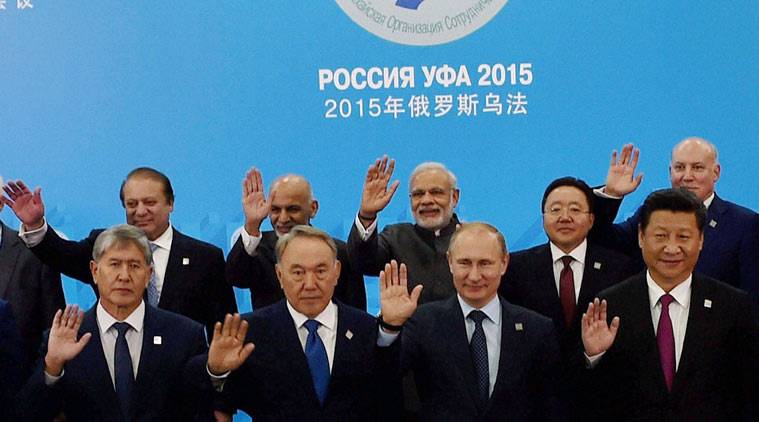‘We are aware that regional economic development is a necessary prerequisite to peace and stability. [..] I have no doubt in my mind that our region is capable of taking a quantum leap into an unchartered future – a future of unlimited opportunity, a future of infinite hope.’
–Mohtarma Shaheed Benazir Bhutto,
14th March 1995.
In the recent years we have witnessed an astronomical increase in the phenomenon of ‘regionalism’ and ‘regional organisations’. The ability to transform the socio-economic conditions of its people by a regional organization has been best demonstrated by the undeniable success of the European Union in the last two decades, and today we see it in the form of Shanghai Cooperation Organization (SCO).
It is no secret that the SCO has been a game changing organisation for our region. Established in 2001, the premiere organisation stands just two months away from the Tashkent Conference (to be held in June 2016) where the formal admission of the two ascending states will be completed for the first time since its inception, making Pakistan a full member of the SCO.
The inclusion of new members is a reflection of the changing geo-political and geo-strategic environment of the world in general and this region in particular. Over the past decade, an increasing trend of international maneuvering and manipulation has become visible, highlighting external objectives aimed at destabiliding the region and isolating regional powers, and rapidly transforming a bad dream into a dangerous reality.
It has become evident particularly in the aftermath of the War on Terror (WoT), that this part of the globe once again finds itself left to reckon with the consequences of an imported war, and to pick up the pieces of societies and structures that have been shattered by over a decade of conflict.
All SCO member states hold vast untapped potential to facilitate the reconstruction process of this ravaged region, and with each new member that potential and strength will increase. There is no doubt that Pakistan’s inclusion will infuse new strength into the organisation. The country’s entry will open doors of opportunity for all SCO member states. It will boost the organisation’s appeal and influence within the international arena, and strengthen its future development, setting it on the path to becoming a premier regional cooperation organisation.
Amongst the many positives that Pakistan brings to this table, the foremost is connectivity. Given its geostrategic location, the country will open doors to new linkages across the entire region through road links and sea routes. It will open up economic connectivity for all SCO members, with not only our region but neighboring ones as well, through ease of access. It will be the best conduit between SCO countries and the South Asian region, providing the shortest possible trade routes between Central Asia and Iran on the one hand, and the Russian, Chinese and Indian markets on the other. And it will enhance trade itself by tying the region together with new energy corridors. In the current environment of enhanced regional economic cooperation, and the SCO’s newly reiterated emphasis on this aspect, Pakistan will act as the ‘zipper’ bringing the region together, both physically and economically.
As a leader within the Muslim world, Pakistan can open many new doors for SCO member states, for economic connectivity as well as other avenues of cooperation. It should be remembered that connectivity with Pakistan is not just connectivity with a single country, but effectively a stronger link with all its partners as well. And with this newfound connectivity comes a revitalisation of trade and economic growth, which will bring peace and prosperity to the region.
Another key benefit for the SCO members is, Pakistan’s role and experience as a frontline state in combating terrorism and extremism, which can be an asset to the Regional Anti-Terrorist Structure (RATS) and the Regional Counter Terrorism Structure (RCTS). With the addition of Pakistan, the collective efforts by member states to counter terrorism and violent extremism will attain an important ally, as we have been effectively countering this menace for over a decade now. The internationally lauded Operation Zarb-e-Azb, which has reclaimed our national space from terrorists, is a prime example of the successes achieved by Pakistan in this context.
The prospect of full permanent membership of the SCO is also a very promising development for Pakistan. The entry will further strengthen Pakistan’s traditionally close relationship with China, as well as significantly enhance its increasing ties with Russia and the Central Asian Republics. The ascension process alone has also already hugely facilitated the improvement the political atmosphere of Islamabad’s relations with its regional neighbors and partners.
It would not be wrong to state that for the resolution of the lingering disputes between Pakistan and India, the SCO provides both an opportunity and an appropriate platform; and given its effective track record of conflict resolution, also creates hope for the possibility of a productive outcome as well as prevention of any possible future escalations.
Today, great importance is being placed on the role of civil society, public diplomacy and Track II initiatives in strengthening and facilitating the SCO expansion process. We must not only acknowledge but also emphasize just how vital Track II initiatives are for strengthening people-to-people contact, and thereby sustainable, long-term partnerships between states. It is only in solidifying this bond that we can consolidate the link between the people of this region, and by extension the state parties, unifying them into a force to be reckoned with.
We must take the first collective step towards diminishing the distances and misunderstandings between us, and work towards the betterment and prosperity of entire region. Let us remember that together, we stand stronger.
The article is an excerpt from Senator Sehar Kamran’s speech delivered at the International Forum “On the Second Track: The Role of Civil Society and Public Diplomacy in the Further Development and Expansion of the Shanghai Cooperation Organization”, held in Sochi, Russia from 19-20th April, 2016.






